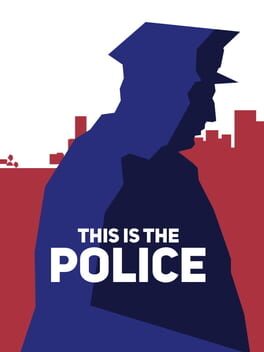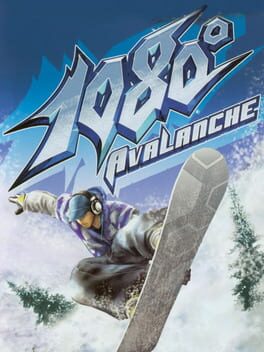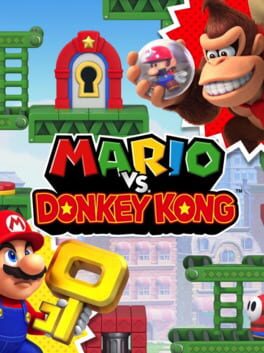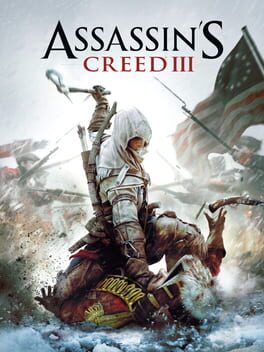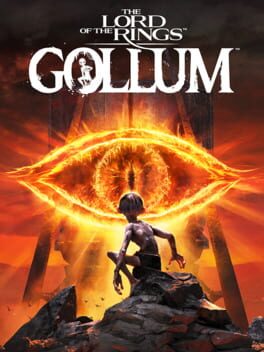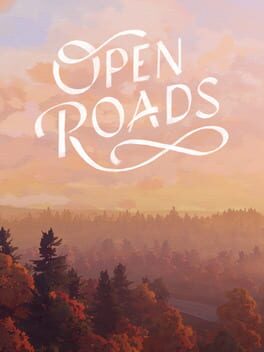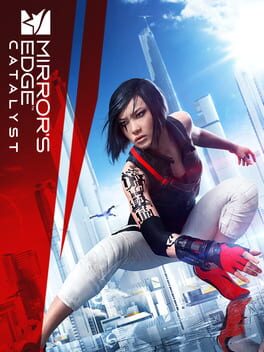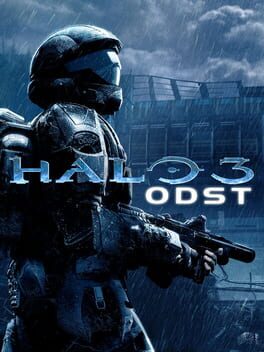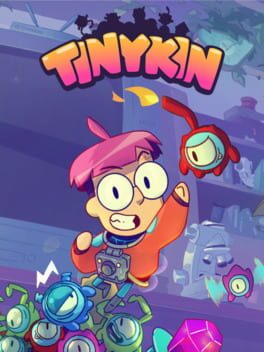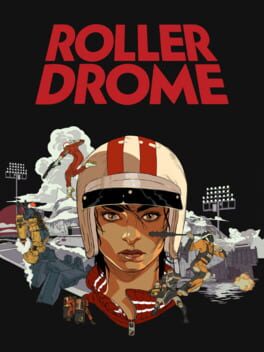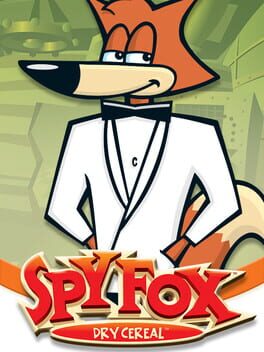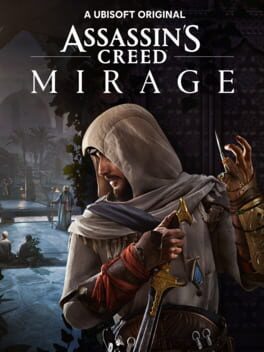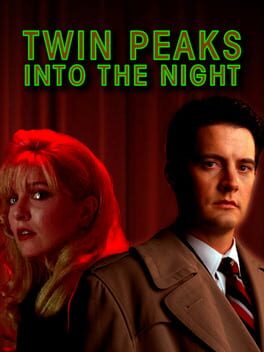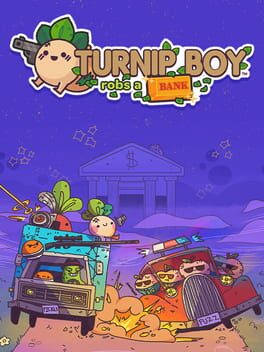BearlyFrosty
2016
This review contains spoilers
I initially became curious to play Weappy Studio’s This is the Police when I realized that my opinion of law enforcement was tanking. Maybe it was because of everything I would see on r/badcopnodonut. Maybe it was a result of my changing political beliefs. Or Maybe I was going through a second adolescence and developing a renewed distrust of authority. Whatever the case, I didn’t like cops. But that’s not fair right? Somebody has to enforce the law? After all, I had no qualms with cops from other countries. The system is the problem. Maybe if I understood the system, I would know how to change the system. Most logical individuals when faced with this dilemma would read a book or maybe look at some news article. I decided to play a video game.
The game’s core loop (and one you will repeat many, many times) is as such. A 911 call appears, you assess the situation, and you dispatch the necessary forces. The game throws a myriad of other challenges your way, but this is what you’ll be doing the whole time.
But the game piles on complication after complication, gangs you have the indulge, business-people who need favors, outrageous demands from city hall, more crimes than you could ever solve, special investigations, and a serial killer that I barely tried to catch. Each complication comes with new rules, a new system to follow, and each system juts up against one another vying for your attention and more importantly, your resources, your officers.
And on top of that, half your officers are alcoholics
There’s a visual novel that plays occasionally where you get to watch your character, disgraced police chief Jack Boyd as he stumbles his way through his last half year on the job before a forced retirement. The mayor is a corrupt jackass and Jack really needs the money so he cozies up with some characters and engages in some...extra-legal activities just to make ends meet. The voice acting in the whole thing is first-rate, and I’d be lying if I said I wasn’t intrigued by the whole thing, but for me, the real story was found working the streets. It doesn’t help that the choices you make during the story cut-scenes barely have an effect on how you play the game. It doesn’t matter who’s side you take in the gang war, or who you support in the next mayoral election, it’s the same song and dance and all paths offer the same resistance.
The only way out is to leave your scruples behind. This isn’t one of those, “try to get the good ending” games. There’s no other way, corruption is not a choice, it is your fate. Maybe you make enough money, maybe you don’t. It doesn’t change much. You’re still addicted to pain meds, your wife still left you, and the city is still probably screwed no matter who your predecessor is.
Around 80% of my way through the game I was very short of my cash goal, and desperate for wealth, I took a shady deal from a shady fellow. He offered me a large sum of money to test out his experimental new auto fuel on our patrol cars, aware that this too-good-to-be-true, monkey's paw offer would backfire eventually, and backfire it did. The patrol cars started crashing, daily, officers were dying left and right when something mysteriously misfired and they lost control. The faulty cars did not discriminate, they killed new hires at the same frequency as they killed my seasoned professionals, even those cops who had been with me from the beginning. I would hire more just to watch them die. My personnel issues made it impossible for me to answer most calls, and my approval rating tanked on all ends only leading to more budget cuts, escaped criminals, and civilian deaths. I was hurling towards the climax, and somebody had cut my breaks. That was just the system consuming me.
This Is The Police has consistent and evocative sound effects. Nothing gets me in the mood to do police work like some radio chatter, blazing sirens, and the clinking of handcuffs on a perp’s wrists. Each occurrence in the game has its own sound, and, since the core loop is very repetitive, each sound cue will be branded in your mind by the end of the game. In that final stretch where I lacked to resources to respond to a lion's share of the calls, I would hear the same two sound cues over and over again—the sound of quickend footsteps signaling that the perp got away, followed by two gunshots: bang, bang: signalling that a civilian had died. That same symphony ringing again and again in my ears cemented the weary despair that had been building day after day of thankless policing. My city was falling apart, there was nothing I could do to save anyone, and it was entirely my fault.
Not that I cared, but at the end of the game lead a military style raid on either city hall (to kill the mayor) or the manor of the populist candidate for the same office (who happens to be the aforementioned serial killer). Neither choice was good and my character would probably not benefit from either. I despised the game for making my choose. There was an extra hard puzzle to top off the game that I realized too late I had failed to collect the correct information for (not that I had the resources to do so). I googled the answer and ended the game.
Police dramas, and Noirs, and pulp fiction will frame the world as a cold and uncaring place. Oftentimes it matters less that you have an ethic, and more that you know how to play the game. But there’s something about being there, entering the world and seeing it as both a story and a system, that’s just deadening. And I can’t decide if it’s savage or profound. I know that right now I’m seeking out art that reveals the light at the end of the tunnel, but this ain't it Chief.
And that’s when I started to think in actual depth about the way I understood my place as the head of the Freeburg Police Department. Because my agency was trapped in the digital space of the police force, I began to see the world through their eyes. The game kept saying to me “look at all the crime you can’t stop” look at
In the real world though, the budget is not dire. Most cities could cut officers. Most cities could cut back on their purchasing of riot gear, tear gas, and military-grade armored vehicles. That tension does not exist in TITP. You have a swat team but it’s just a small buff. There’s no way to inventory your firearms or shields or gas-masks.
There’s one mechanic in the game that I repeatedly saw criticized online. A few times during the game, there is a protest downtown. First it’s about racial justice, then feminism, then [the environment]. The purpose of the protests are of little consequence as your player character never expresses an opinion on pressing social issues and the mechanics of every encounter function the same, but in each and ever situation, City Hall sees the protests as a threat. You are given the same choice every time. Let the activist protest, or suppress with force. It’s a binary decision and there are negative consequences to both choices, but it didn’t seem like and accident when every time I was asked to make the choice it felt that I would get off easier if I sent in my boys to break a few faces. Most of the critics I read saw this moment as insensitive and blase. I think it’s blunt.
The game’s core loop (and one you will repeat many, many times) is as such. A 911 call appears, you assess the situation, and you dispatch the necessary forces. The game throws a myriad of other challenges your way, but this is what you’ll be doing the whole time.
But the game piles on complication after complication, gangs you have the indulge, business-people who need favors, outrageous demands from city hall, more crimes than you could ever solve, special investigations, and a serial killer that I barely tried to catch. Each complication comes with new rules, a new system to follow, and each system juts up against one another vying for your attention and more importantly, your resources, your officers.
And on top of that, half your officers are alcoholics
There’s a visual novel that plays occasionally where you get to watch your character, disgraced police chief Jack Boyd as he stumbles his way through his last half year on the job before a forced retirement. The mayor is a corrupt jackass and Jack really needs the money so he cozies up with some characters and engages in some...extra-legal activities just to make ends meet. The voice acting in the whole thing is first-rate, and I’d be lying if I said I wasn’t intrigued by the whole thing, but for me, the real story was found working the streets. It doesn’t help that the choices you make during the story cut-scenes barely have an effect on how you play the game. It doesn’t matter who’s side you take in the gang war, or who you support in the next mayoral election, it’s the same song and dance and all paths offer the same resistance.
The only way out is to leave your scruples behind. This isn’t one of those, “try to get the good ending” games. There’s no other way, corruption is not a choice, it is your fate. Maybe you make enough money, maybe you don’t. It doesn’t change much. You’re still addicted to pain meds, your wife still left you, and the city is still probably screwed no matter who your predecessor is.
Around 80% of my way through the game I was very short of my cash goal, and desperate for wealth, I took a shady deal from a shady fellow. He offered me a large sum of money to test out his experimental new auto fuel on our patrol cars, aware that this too-good-to-be-true, monkey's paw offer would backfire eventually, and backfire it did. The patrol cars started crashing, daily, officers were dying left and right when something mysteriously misfired and they lost control. The faulty cars did not discriminate, they killed new hires at the same frequency as they killed my seasoned professionals, even those cops who had been with me from the beginning. I would hire more just to watch them die. My personnel issues made it impossible for me to answer most calls, and my approval rating tanked on all ends only leading to more budget cuts, escaped criminals, and civilian deaths. I was hurling towards the climax, and somebody had cut my breaks. That was just the system consuming me.
This Is The Police has consistent and evocative sound effects. Nothing gets me in the mood to do police work like some radio chatter, blazing sirens, and the clinking of handcuffs on a perp’s wrists. Each occurrence in the game has its own sound, and, since the core loop is very repetitive, each sound cue will be branded in your mind by the end of the game. In that final stretch where I lacked to resources to respond to a lion's share of the calls, I would hear the same two sound cues over and over again—the sound of quickend footsteps signaling that the perp got away, followed by two gunshots: bang, bang: signalling that a civilian had died. That same symphony ringing again and again in my ears cemented the weary despair that had been building day after day of thankless policing. My city was falling apart, there was nothing I could do to save anyone, and it was entirely my fault.
Not that I cared, but at the end of the game lead a military style raid on either city hall (to kill the mayor) or the manor of the populist candidate for the same office (who happens to be the aforementioned serial killer). Neither choice was good and my character would probably not benefit from either. I despised the game for making my choose. There was an extra hard puzzle to top off the game that I realized too late I had failed to collect the correct information for (not that I had the resources to do so). I googled the answer and ended the game.
Police dramas, and Noirs, and pulp fiction will frame the world as a cold and uncaring place. Oftentimes it matters less that you have an ethic, and more that you know how to play the game. But there’s something about being there, entering the world and seeing it as both a story and a system, that’s just deadening. And I can’t decide if it’s savage or profound. I know that right now I’m seeking out art that reveals the light at the end of the tunnel, but this ain't it Chief.
And that’s when I started to think in actual depth about the way I understood my place as the head of the Freeburg Police Department. Because my agency was trapped in the digital space of the police force, I began to see the world through their eyes. The game kept saying to me “look at all the crime you can’t stop” look at
In the real world though, the budget is not dire. Most cities could cut officers. Most cities could cut back on their purchasing of riot gear, tear gas, and military-grade armored vehicles. That tension does not exist in TITP. You have a swat team but it’s just a small buff. There’s no way to inventory your firearms or shields or gas-masks.
There’s one mechanic in the game that I repeatedly saw criticized online. A few times during the game, there is a protest downtown. First it’s about racial justice, then feminism, then [the environment]. The purpose of the protests are of little consequence as your player character never expresses an opinion on pressing social issues and the mechanics of every encounter function the same, but in each and ever situation, City Hall sees the protests as a threat. You are given the same choice every time. Let the activist protest, or suppress with force. It’s a binary decision and there are negative consequences to both choices, but it didn’t seem like and accident when every time I was asked to make the choice it felt that I would get off easier if I sent in my boys to break a few faces. Most of the critics I read saw this moment as insensitive and blase. I think it’s blunt.
2003
2012
Wee woo, I certainly am flustered! Oh I apologize for bumping into you, my name is Benjamin Franklin, perhaps you already met Benjamin Franklin, my best friend. You look like a strapping young man! When did you get to town? Twelve seconds ago you say? I don't want to trouble you so early but if I could just take one moment of your time? See I've lost all the pages of my Poor Richards almanac and I simply won't be able to print it in time if I don't find them. If you happen to see them floating around Philly won't you catch them for? Perhaps your unborn son could help you when you get around to that.
I was about three hours into the game, deep into the very long first real chapter when the game began to fall apart. I suspected the real cracks of the game were about to appear, but then the game soft-locked by putting me in a death loop. I took it back to the library after that.
I really hate to give up on the game because despite everything I still was curious to see where it would go. There are glimpses of real creativity underneath the over-dark levels and awkward animations. The writing is poor, but there I think there is weird, PS2 platformer story in there somewhere.
I really hate to give up on the game because despite everything I still was curious to see where it would go. There are glimpses of real creativity underneath the over-dark levels and awkward animations. The writing is poor, but there I think there is weird, PS2 platformer story in there somewhere.
2024
Staying positive here, if you liked the original, this is just more of that. If you didn't like the original then, well, don't play it I guess. I don't think the sequel makes any improvements to the formula and whatever social aspect existed when the servers were up is long gone now. I found the narrative frustratingly bland but honestly the combat is endearing and you can run past most fights if you are not in the mood.
2009
2022
I was about a half-an-hour into Tinykin when I realized that by the end of the game, I would kill god. I was not precisly right, since I don't think you kill anything or anyone in Tinykin, but I came close.
Everything in this game feels precice. Let it wash over you on a sunny spring afternoon. Play it with your spouse. Sing along to the hymns of the insects.
Everything in this game feels precice. Let it wash over you on a sunny spring afternoon. Play it with your spouse. Sing along to the hymns of the insects.
2022
Combat, when it hits, is so good it feels like a magic trick. It's fun as heck if you can get into it. Over the course of it's 11 arenas though, it doesn't develop very well: levels become repetitive, the new combat mechanics don't meld well, and they add a repetitive boss battle that shows up two different times. There's also an excellent narrative, but unfortunately it never gets a chance to really shine. Still, I'd really recommend trying this one. I'm not very good at it, so the generous assist settings came in clutch.
It's-A beautifully charming and playful game, with gentle difficulty curve and plenty of mechanics to ease the frustration characteristic of some of these 2D Mario games. I'm sure that some hardcore fans will miss the challenge of older games but it hits the sweet spot for me. I'll be honest, it's not as groundbreaking as it sounded when it first got released, but it's so polished you can see your reflection in it. I hope that they treats their workers well because I don't know that anyone does the art of game development like Nintendo.
I don't know if any AC game has the "Assassin Juice" but this one certainly does not. What it does have is a story so boring it almost undermines the setting, paper-thin characters and a unbalanced combat system. The setting and exploration mechanics do what they can to evoke the feeling of early AC games, but the real conspiracy here is that early AC games were never great. Mirage not a throwback; it is a regression.
